Are protein bars good for you? This post will answer your questions, explain which bars are best, and even give you recipes to make your own!
A lot of questions are presented to me by followers of my journey to a healthy lifestyle. Like, Is Coffee Healthy, or Does Intermittent Fasting Work For Weight Loss?
I really enjoy researching and figuring out these questions, and the cool thing is, I learn a lot in the process, too. The questions that you ask only help me to become more knowledgeable. So, keep them coming, my friends!
So, this post is based on whether or not protein bars are good for you. We'll determine whether they are just another part of the hype out there, quick fixes for weight loss, or muscle building bars that everyone should eat.
Protein bars are a grab n’ go food item that fits in with the busy lifestyles many of us lead. They are convenient and a quick way to get nutrients in a pinch.
There is some confusion after all, because of the sugar content of some bars, or the fact that they don’t have much protein at all. Some protein bars are just extra rich candy bars. But there are other bars that give you a protein boost without a ton of added sugar and other unpronounceable ingredients.
We’re going to look at all the details to ensure that you are buying the best protein bar for health. Or even better, I’ve got some great recipes for making your own.
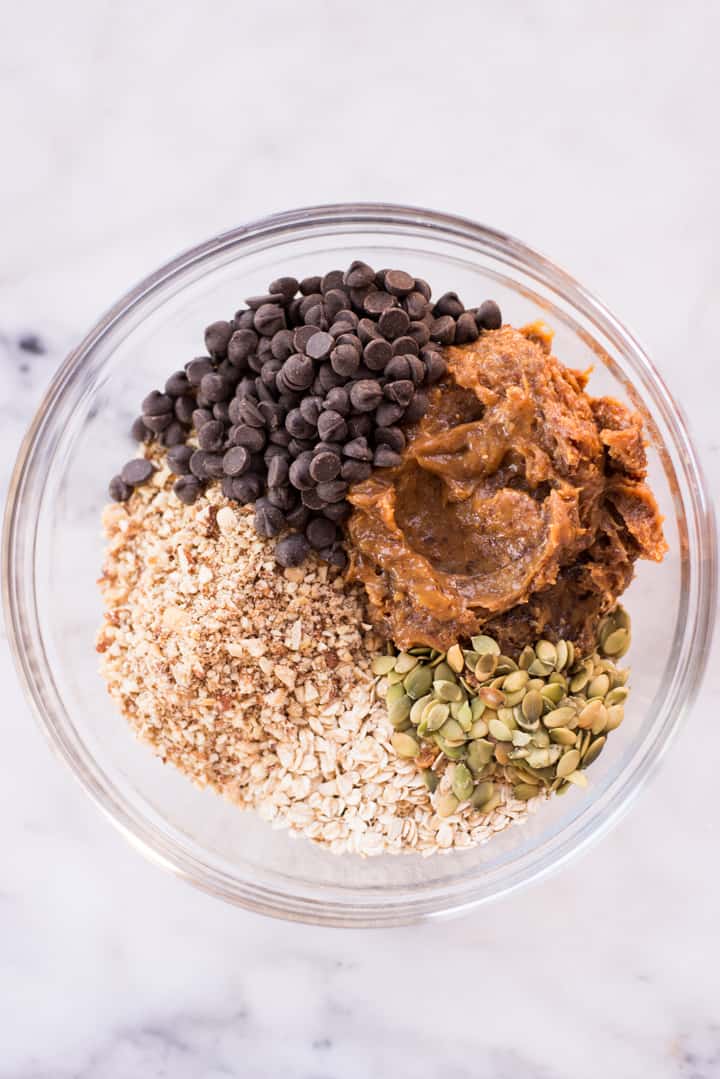
WHAT IS IN A PROTEIN BAR AND WHAT DO I LOOK FOR?
The protein sources used in bars are often from plant and dairy sources. You’ll see ingredients, like yogurt powder, casein, peas, soy, hemp, rice, and whey.
Fat is another ingredient, and it’s important that you look out for fats like partially hydrogenated oils. These are fats you want to avoid.
Some of the protein bars out there have as much as 30 grams of sugar. Sugar can sometimes sabotage any of the goodness in a bar if it's the main ingredient. I know you may think it’s hard to stay away from sugar. For the scoop on how to avoid hidden sugars, look at my post about it here. It is entirely possible to drastically cut down on or even quit sugar. And when you do, you won’t find sugary food appealing at all.
Watch out for high fructose corn syrup, too, an ingredient found in a lot of foods we eat because it is an easy sweetener. It is linked to things like diabetes, fatty liver, and obesity.
On the other hand, fiber in a bar is a good thing. It’s the ingredient that will make you feel full and keep your digestive system working top-notch. Ideally, the bar you eat will have at least 3 to 5 grams in each bar.
What about calories? If the bar is a meal replacement, look for 300 to 400 calories. As a pre- or post-workout snack, look for 200 to 250 calories.
Healthy ingredients you may see in a protein bar are:
- Dates
- Quinoa
- Oats
- Nut butter
- Seeds
- Dried fruit
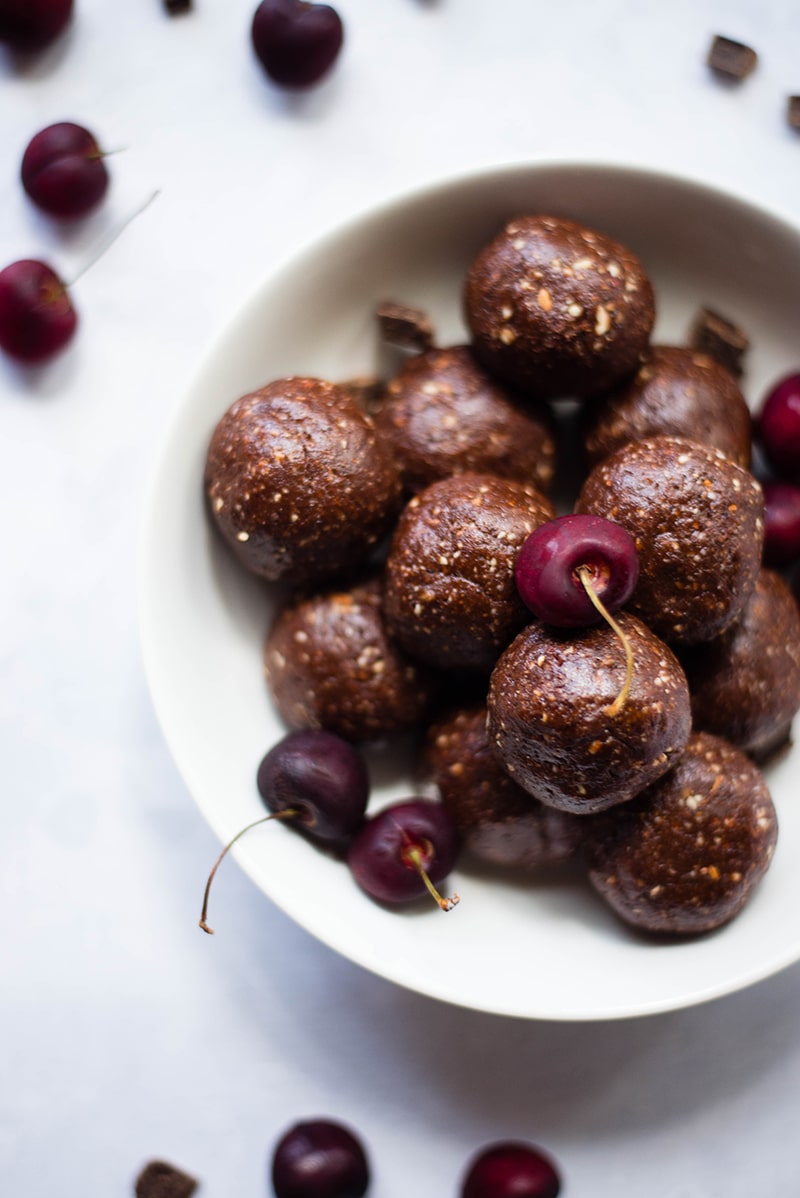
WHY DO WE NEED PROTEIN?
Protein is pretty essential to overall health. Protein is thought to influence the hormones in muscle building, help the muscles to recover, and boost your metabolic rate. Protein makes you feel full, and that can keep you away from unhealthy snacking.
In general, this is why protein is called a building block – a lot to do with your health is based on protein.
The key, though, is to choose protein from good sources. For example, choose lean fish over marbled with fat steak. Go for a healthy, plant-based source like chia seeds over an ultra-processed source like a sugary, “fake-ingredient” filled protein bar. That’s why I am writing this post. To give you knowledge about which protein bars are good for you.
HOW MUCH PROTEIN DO I NEED?
According to the Harvard Health website, the Recommended Daily Allowance (RDA) for protein in 0.8 grams of protein per kilogram of your body weight. Since we work mostly in pounds, let’s look at the calculation to figure out your RDA based on your weight in pounds. It’s pretty basic.
Multiply your weight by 0.36 to calculate your protein RDA. For example, a woman who is 50 years of age and weighs 145 pounds has an RDA of about 52 grams. This is based on a sedentary lifestyle, so an active person would need more.
In fact, the protein summit in Washington, DC, where the above RDA numbers were used, determined that consuming even twice the recommended daily intake would be safe and healthy. High protein intake can preserve muscle strength and help you burn fat. As you age, protein is even more critical to helping you maintain muscle mass.
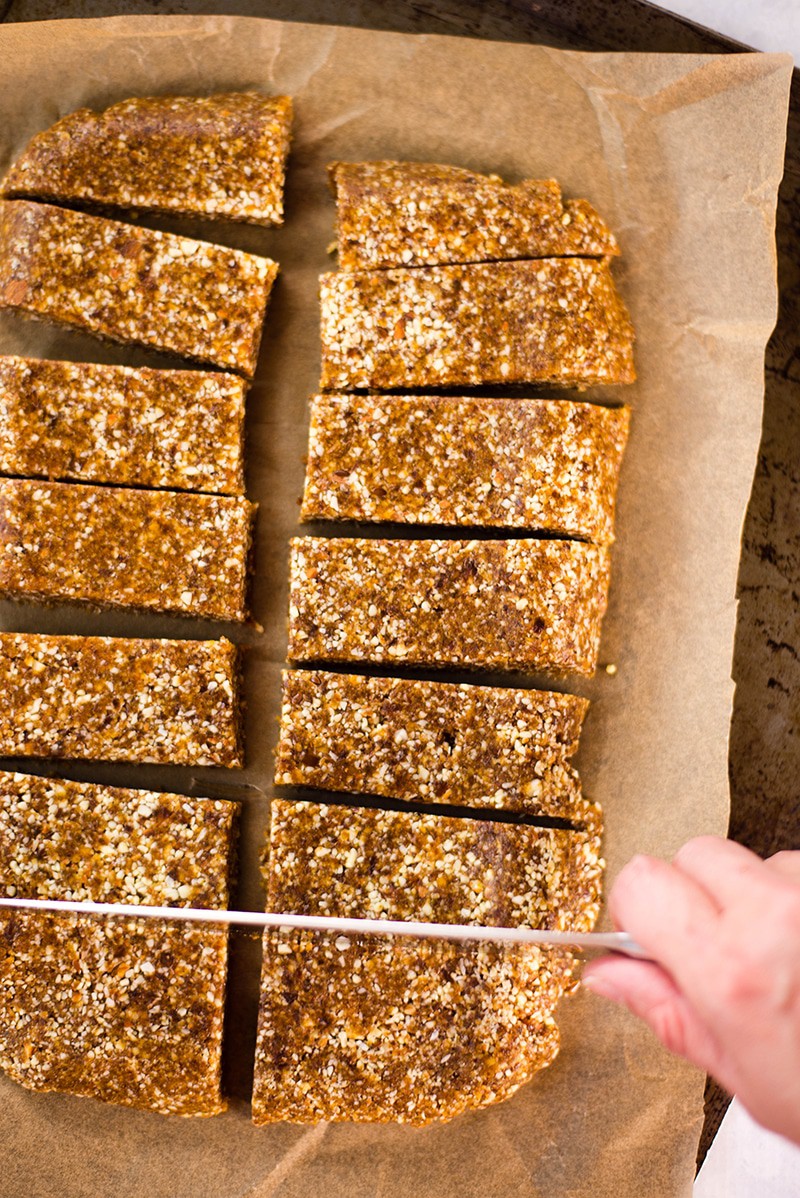
HOMEMADE VERSUS STORE-BOUGHT PROTEIN BARS
There is no disputing that protein bars are a quick way to sate your hunger and can be a nutritious snack as long as you check the ingredients. But what about homemade versus store-bought protein bars? If you make them in your own kitchen, you can easily answer the question, “are protein bars good for you?” because you know exactly what is going into them.
If you are looking to make your own, that’s a wise decision. Protein bars can have calcium, iron, potassium, vitamins, minerals, and magnesium, depending on what you put in them. That’s the beauty of making them yourself. Use clean-eating ingredients to make powerhouse bars that are full of goodness and nutrition. You’ll avoid unnecessary things like high-fructose corn syrup, highly processed oils, sugar alcohols like xylitol, and even artificial sweeteners.
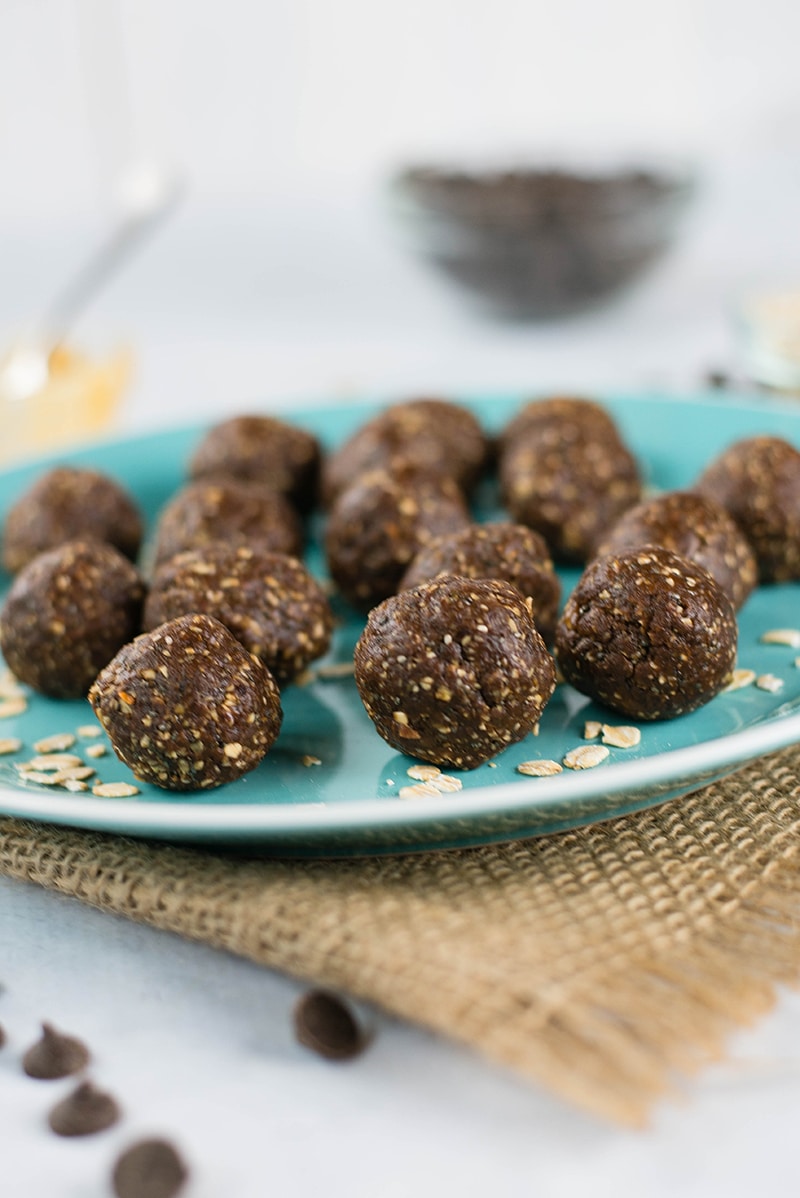
HOW TO MAKE A HEALTHY PROTEIN BAR
I’ve got a few recipes on the blog for protein bars and bites that will give you a boost of nutrition and energy. To make a bar nourishing, stick with natural ingredients, as you see in the recipes below.
My Easy 7 Layer Paleo Bars are a great recipe to make at home. One bar has 5.9 grams of protein and 329 calories. This bar will give you energy without a lot of sugar because they are sweetened with pure maple syrup!
Another one of my favorite recipes is No-Bake Chocolate Peanut Butter Energy Balls. With few calories and super nutrient-dense ingredients like dates and chia seeds, these energy balls are winners when it comes to a quick pick-me-up snack.
Speaking of bites, you gotta love dark chocolate! Give these a try: Dark Chocolate Cherry Energy Bites and Dark Chocolate Coconut Covered Bites. Cherries and dates give you fiber, and the almonds are your protein supply for the cherry energy bites. For the coconut bites, use unsweetened coconut and just a little honey for a sweet snack that will get you through to dinner without eating a lot of processed ingredients.
Flaxseed Apricot Bars have tons of goodness in them. Calcium, protein, and potassium are just a few nutrients you’ll find packed into this bar.
I've got a protein-rich granola bar recipe, too, with 5 grams of protein per bar. Each portion has 29mg of calcium, along with 339mg of potassium. Give them or any one of these other yummy recipes a try!
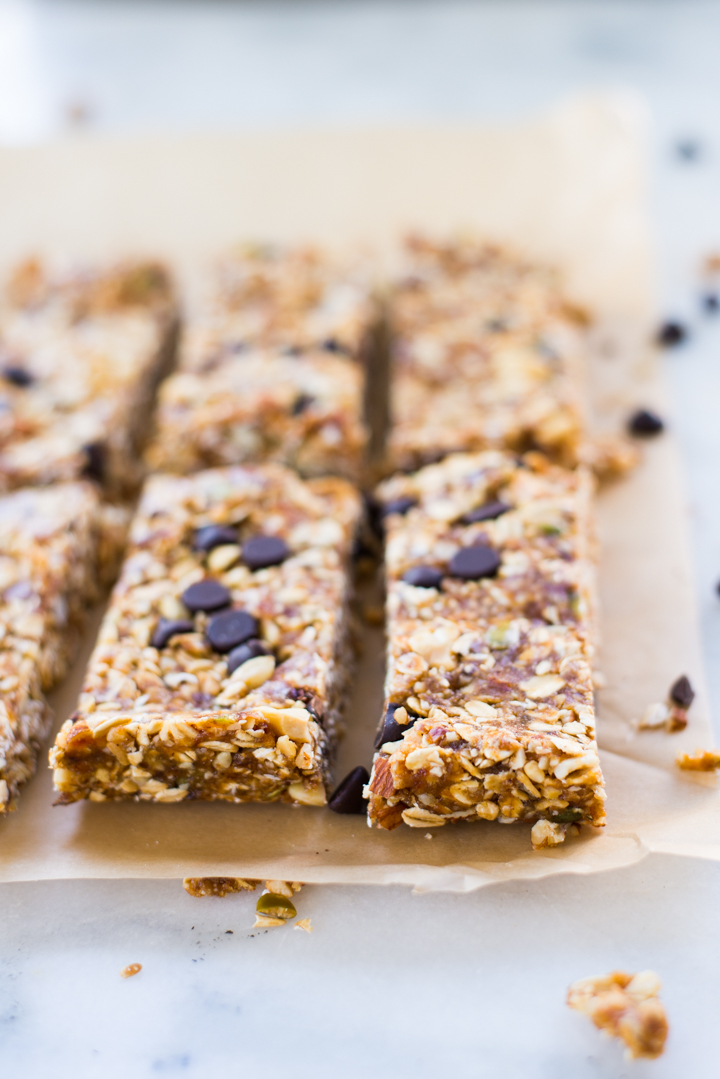
WHAT TO LOOK FOR IN A PROTEIN BAR
Although it is always best to make your own protein bar, sometimes, when in a pinch, you may buy a packaged product. There are several things to watch out for, so always read the package ingredients and nutritional label before purchasing.
- A protein snack bar should be less than 200 calories
- A meal replacement bar should have over 200 calories
- If your protein bar is meant as an after-workout recovery bar, look for 20 grams of protein
- A protein snack bar should have at least 10 grams of protein
- Any protein bar should have half of the bar’s carbohydrates as protein
- The sugar content should be below 7 grams per bar
- The fat content should be below 12 grams per bar
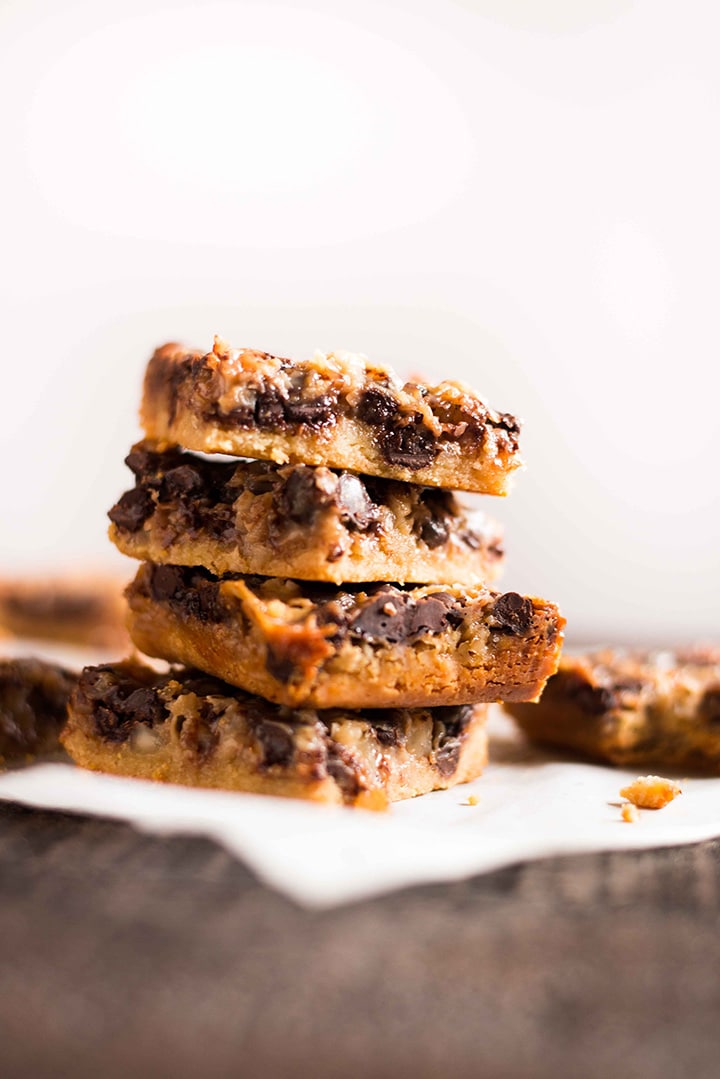
CAN I EAT PROTEIN BARS EVERY DAY?
You can eat a protein bar every day as long as you are not using the bar as your main protein source. It’s also important to balance what you are eating with good-for-you fruits and vegetables, too.
Additionally, you’ll want to be extra careful about eating commercially processed bars too often. Remember to take the time to make your own, and you’ll know exactly what you are putting in your body – and what you are not, like overly processed sugar.
DO PROTEIN BARS MAKE YOU GAIN WEIGHT?
Protein bars are sometimes used as a weight gain aid. Because they are calorie-dense, and depending on what type you buy, can have a lot of calories in a small bar. That makes it easy to put on extra pounds because you get the calories without a lot of extra food. So, as long as your bar of choice does not have too many additives, this weight gain method may work for you.
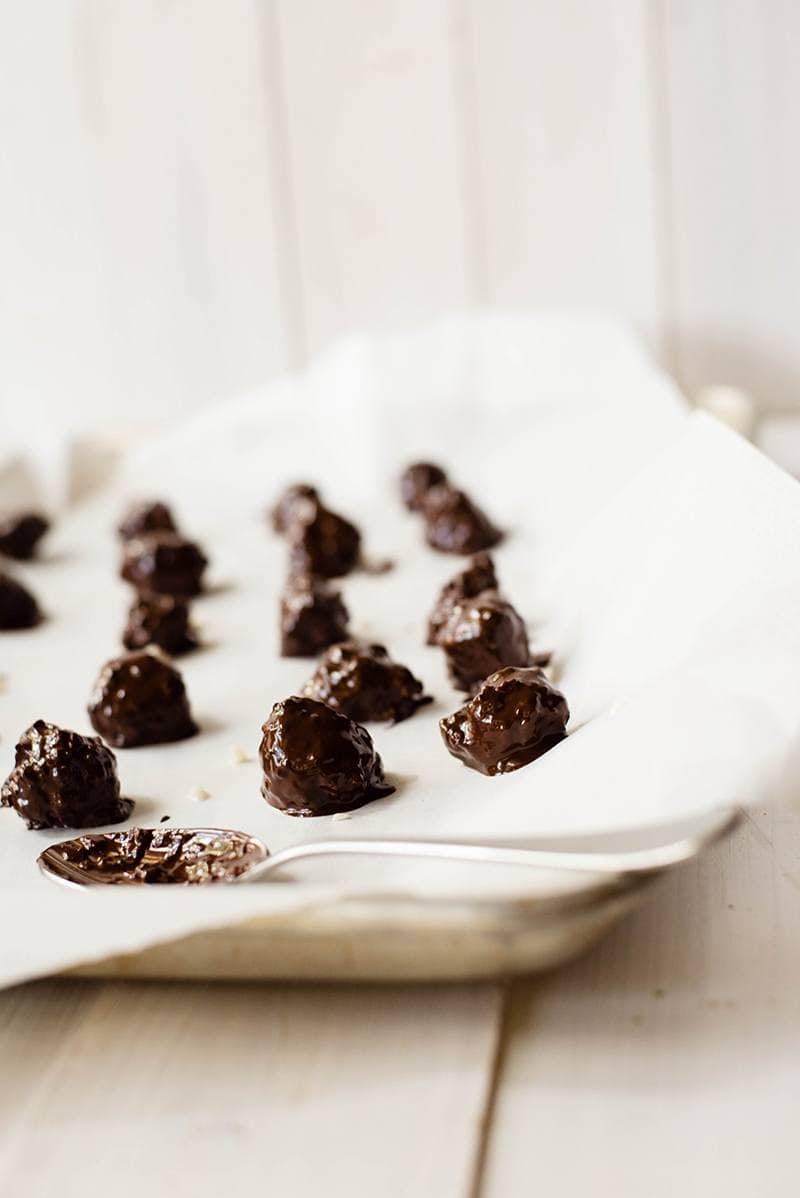
WHAT ARE OTHER GOOD SOURCES OF PROTEIN?
While protein bars can be a good source of protein, there are other ways to get this building block food that are even better. You see, protein on its own, such as a source like fish, is a much more efficient and healthy way to get it than eating a bar with multiple ingredients, including sugar and refined carbs. For excellent sources of protein, consider these sources:
- Fish like salmon and tuna
- Turkey or chicken
- Tofu
- Full-fat plain Greek yogurt (see the benefits of dairy!)
- Nuts like almonds and walnuts
- Eggs (read about the benefits of eggs!)
- Cottage cheese
- Cooked beans
- Protein smoothies
- Protein shakes
This post contains affiliate links for products I use regularly and highly recommend.

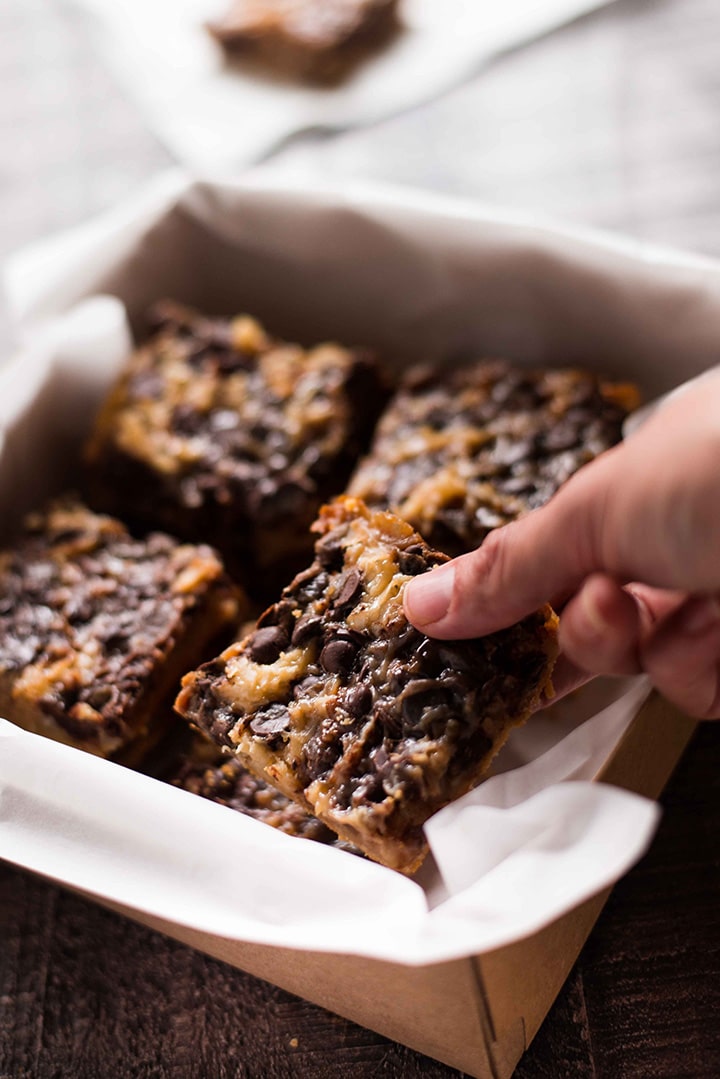

Mary Beth Leib
Lacey, I read your article about protein bars. I did see where you recommended making your own as opposed to store bought bars. Regarding store bought bars, are there any specific brands you would recommend? I do enjoy your YouTube videos and have learned a lot from them. Thanks!